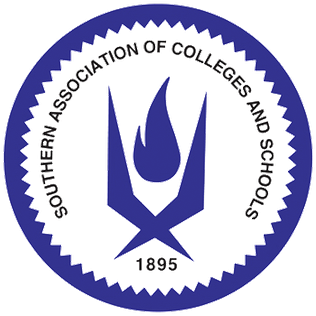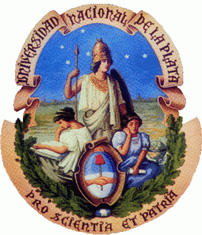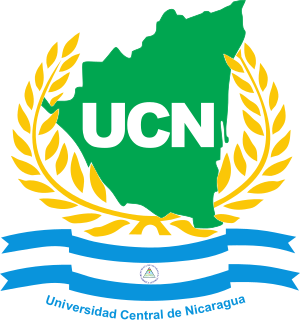
Nicaragua, officially the Republic of Nicaragua, is the largest country in the Central American isthmus, bordered by Honduras to the northwest, the Caribbean to the east, Costa Rica to the south, and the Pacific Ocean to the southwest. Managua is the country's capital and largest city and is also the third-largest city in Central America, behind Tegucigalpa and Guatemala City. The multi-ethnic population of six million includes people of indigenous, European, African, and Asian heritage. The main language is Spanish. Indigenous tribes on the Mosquito Coast speak their own languages and English.

The Nicaraguan Armed Forces are the military forces of Nicaragua.

The Sandinista National Liberation Front is a socialist political party in Nicaragua. Its members are called Sandinistas[sandiˈnistas] in both English and Spanish. The party is named after Augusto César Sandino, who led the Nicaraguan resistance against the United States occupation of Nicaragua in the 1930s.

Managua is the capital and largest city of Nicaragua, and the center of an eponymous department. Located on the southwestern shore of Lake Managua and inside the Managua Department, it has an estimated population 1,042,641 in 2016 within the city's administrative limits and a population of 1,401,687 in the metropolitan area, which additionally includes the municipalities of Ciudad Sandino, El Crucero, Nindirí, Ticuantepe and Tipitapa.

The University of Chile is a public university in Santiago, Chile. It was founded on November 19, 1842 and inaugurated on September 17, 1843. It is the oldest and the most prestigious in the country. It was established as the continuation of the former colonial Royal University of San Felipe (1738), and has a rich history in academic, scientific and social outreach. The university seeks to solve national and regional issues and to contribute to the development of Chile. It is recognized as one of the best universities Latin America for its leadership and innovation in science, technology, social sciences, and arts through the functions of creation, extension, teaching, and research.

The University of Turku, located in Turku in southwestern Finland, is the third largest university in the country as measured by student enrollment, after the University of Helsinki and Tampere University. It was established in 1920 and also has facilities at Rauma, Pori, Kevo and Salo. The university is a member of the Coimbra Group.

The Southern Association of Colleges and Schools (SACS) is one of the six regional accreditation organizations recognized by the United States Department of Education and the Council for Higher Education Accreditation. This agency accredits over 13,000 public and private educational institutions ranging from preschool to college level in the Southern United States. Its headquarters are in North Druid Hills, Georgia, near Decatur and in the Atlanta metropolitan area.
The National Agrarian University is a public university in Managua, Nicaragua.

The National University of La Plata is one of the most important Argentine national universities and the biggest one situated in the city of La Plata, capital of Buenos Aires Province. It has over 90,000 regular students, 10,000 teaching staff, 17 departments and 106 available degrees.

Icesi University is a private university located in Cali, Colombia. The campus is located in the area of Pance, south of the city. Founded in 1979 by a group of businessmen in the region. Icesi University with a campus of 141,334 square meters, offers undergraduate programs, specializations, masters and doctorates.

José Simeón Cañas Central American University, also known as UCA El Salvador, is a private university with nonprofit purposes in San Salvador, El Salvador, run by the Society of Jesus. It was founded on September 15, 1965, at the request of a group of Roman Catholic families who appealed to the Salvadoran government and the Society of Jesus in order to create another university as an alternative to the University of El Salvador, becoming the first private institution of higher education in the country. The Jesuits also run Central American University in Nicaragua, opened in 1960.
The National Autonomous University of Nicaragua is the main state-funded public university of Nicaragua.
The Faculty of Science is one of the constituent faculties of McGill University. It is the university's second largest faculty with 16% of McGill students enrolled in one of its various departments.

The Latin American Faculty of Social Sciences is a graduate-only university system and inter-governmental autonomous organization for Latin America dedicated to research, teaching and spreading of social sciences.

The University of Granada is a public university located in the city of Granada, Spain, and founded in 1531 by Emperor Charles V. With approximately 80,000 students, it is the fourth largest university in Spain. Apart from the city of Granada, UGR also has campuses in Ceuta and Melilla.
The National University of Engineering (UNI) is located in Managua, Nicaragua. It is acknowledged by its meticulous and selective admission system, through a high difficulty exam with top components of math and physics. The average of approved applicants it's about 6% out of a pool of more than 2,000 applicants per year. This keeps the new students compromised permanently to the "highest exigency level" of excellency.

The Central University of Nicaragua was founded in 1998. It is nationally accredited and recognized by the Ministry of Education of the Republic of Nicaragua via the Council of National Universities in official government session No. 10-1998, and approved by the Assembly of the Republic Decree No. 2822 according to the Constitution of the Republic and the Law on the Autonomy of Institutions of Higher Education. University launched the Institutional Auto-Evaluation process following the adoption of Law 704 law establishing the National System for Quality Assurance in Education, which regulates the National Council on Evaluation and Accreditation, CNEA.
Roger Lancaster is a professor of anthropology and cultural studies at George Mason University in Fairfax, Virginia, where from 1999 until 2014 he directed the Cultural Studies PhD Program. He is known for his writing in LGBT studies, gender/sexuality, culture and political economy, and critical science studies. His research tries to understand how sexual mores, racial hierarchies, and class predicaments interact in a changing world.

Central American University – Managua is a university located in Managua, Nicaragua. It was founded in July 1960 by the Society of Jesus on land donated by the Somoza Family and was the first private university in Central America. It numbers among its alumni Daniel Ortega who did not graduate, Daisy Zamora, and Ernesto Leal.














